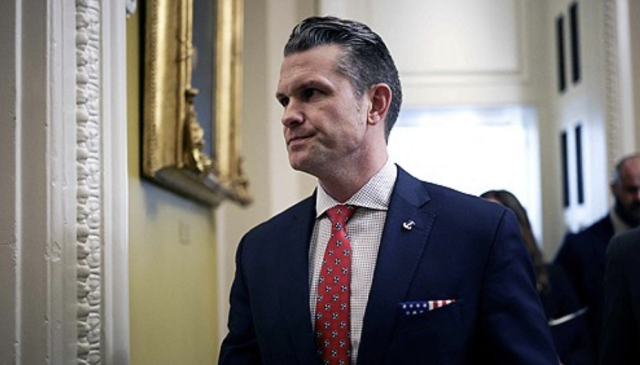
SEOUL, South Korea – The defense chiefs of South Korea and the United States are set to convene the 57th Security Consultative Meeting (SCM) in Seoul next month to discuss the modernization and future direction of the alliance. This significant meeting marks the first formal high-level defense talks since the inauguration of the Lee Jae-myung administration in South Korea and the start of Donald Trump's second term in the U.S.
South Korean Minister of National Defense, Ahn Gyu-baek, and U.S. Secretary of War, Pete Hegseth, will meet at the Ministry of National Defense headquarters in Yongsan-gu, Seoul, on November 4th, according to an announcement by the South Korean Ministry of National Defense on October 27th. Established in 1968, the SCM is the highest-level security consultative body where the two nations' defense ministers meet annually, typically near the end of the year, to address key alliance issues, including the joint defense posture. High-ranking defense and foreign affairs officials from both countries will also be in attendance.
First Official Meeting for Defense Chiefs
This SCM is particularly noteworthy as it represents the first official face-to-face meeting for both defense ministers since assuming their current roles. For Secretary Hegseth, this will be his inaugural visit to South Korea. Given the recent change in leadership in both countries, this SCM is pivotal for establishing the tone and priorities for the defense relationship under the new administrations.
The Lee Jae-myung government has made the transfer of wartime operational control (OPCON) a key national task to be achieved during its term. Accordingly, a major focus of the upcoming SCM will be for the two ministers to review the progress of the 'conditions-based OPCON transfer,' an agreement reached in 2014, and to discuss the plans for the coming year.
Strengthening Joint Readiness and Future Cooperation
Beyond the OPCON issue, Minister Ahn and Secretary Hegseth are expected to scrutinize the combined defense posture against North Korea's nuclear and missile threats. Discussions will also encompass plans to expand the scale and scope of joint combined exercises for the upcoming year to ensure sustained readiness and interoperability.
The agenda will also heavily feature future-oriented defense and technological cooperation. The ministers will explore ways to expand defense industrial collaboration, including the potential for South Korean shipbuilding companies to construct U.S. Navy vessels. This highlights a move towards a more reciprocal and mutually beneficial defense economy. Furthermore, advanced technology cooperation, such as in Artificial Intelligence (AI) and manned-unmanned teaming systems, will be a primary topic, underscoring the alliance's commitment to modernizing its capabilities to meet evolving security challenges.
Expanding Regional and Trilateral Security
Regional security will also feature prominently in the discussions. The defense chiefs plan to explore avenues for increasing trilateral security cooperation among South Korea, the U.S., and Japan. They will also deliberate on sustained efforts to promote multilateral exercises with other nations in the Indo-Pacific region, aligning with both countries' shared vision for regional stability and a rules-based international order.
The Ministry of National Defense stated that the SCM will facilitate discussions on a "full range of current issues aimed at developing the alliance in a future-oriented and reciprocal manner." Although not strictly a defense issue, the outcome of ongoing trade and customs negotiations between the two nations could potentially influence the atmosphere and dynamics of the SCM. The meeting is anticipated to reinforce the robust and enduring partnership, setting a firm foundation for security cooperation in the years ahead under the new administrations.
[Copyright (c) Global Economic Times. All Rights Reserved.]





























